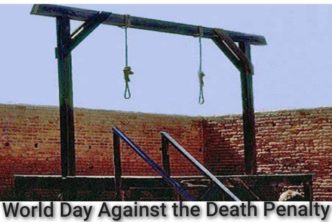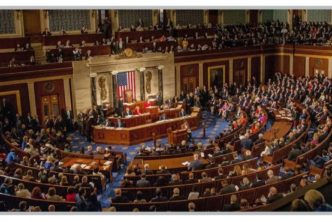New Paper Pegs Survival to Discretion
By Karl Vick
Washington Post Foreign Service
Saturday, July 3, 2004; Page A01
TEHRAN — The time does not appear auspicious for launching a newspaper in Iran.
In the country that the advocacy group Reporters Without Borders calls “the Middle East’s largest prison for journalists,” those dailies still available on newsstands brim with courtroom accounts of less fortunate publications, their editors summoned to the dock by the religious government that has closed more than 100 papers in the past four years.
At last month’s meeting of the official press committee, a government monitoring board that includes representatives of Iran’s news media and of its ruling clerics, a senior mullah named Gholam-Hossein Mohseni Ejei threw two sugar bowls at an editor, then came around the table and bit him on the shoulder — drawing blood, said the editor, Isa Saharkhiz, who pulled down his shirt to show the scab.
“There’s no security for me,” Saharkhiz said, “and therefore none for the press.”
So why is Emadeddin Baghi, a veteran of three years in prison and seven shuttered papers, beaming as he goes about the business of launching an eighth publication?
Jumhuriyat, coming Sunday to newsstands up and down the sycamore-lined streets of Tehran, illustrates both the core resilience and the discreet new trajectory of the progressive impulse in Iran, where politics is not what it used to be.
“After all this repression, it would be a sign of hope to people,” said Baghi, from a corner of a crowded table in a room swarming with young reporters. “We are still alive. We are still trying.
“We want to show that such a thing is still possible here.”
The newspaper is arriving just when the reform movement in Iran is giving every appearance of being on the run, if not actually finished.
Earlier this year, the religious hard-liners who control Iran’s judiciary and appointive offices used their unchecked powers to take over the country’s elected parliament, disqualifying more than 2,000 mostly reformist candidates before February’s elections. In the process, the right wing also completed the marginalization of the reformist president, Mohammad Khatami, who proved powerless to prevent the disqualifications.
The struggle between reformists and hard-liners, which had long preoccupied Iran’s political class, took a back seat to the debate over which wing of the ascendant right would consolidate political clout — “pragmatic” conservatives or hard-liners such as the Islamic Revolutionary Guard Corps.
“If I want to be honest and talk about the future, it’s somewhat confusing to me as well,” said Mohammad Ali Abtahi, a jocular cleric who, as one of Khatami’s vice presidents, stands to be out of a job next year. But the frown that clouded his amiable features lasted only a moment.
“In the social context,” he added, “the future is very bright.”
As it happens, the social context is where Jumhuriyat aims to thrive. Baghi trained as a sociologist, and his newspaper is founded on the widely held belief that most Iranians stopped caring about politics years ago, shortly after Khatami’s 2001 reelection failed to produce either economic revival or changes in the way Iran is ruled. By the time the conservatives pushed aside the reformers, people had already stopped paying attention to a process that had little effect on their lives.
“People are sick of political debate,” said Ali Reza Kermani, who has weathered the closing of three newspapers and quit his day job to join Jumhuriyat. “They want their voices to be heard, not just political debate expressed in jargon they don’t understand.”
Kermani, for example, will cover civic organizations, citizens’ groups formed to address problems such as galloping drug abuse. Pages will be devoted to making sense of culture, entertainment and other topics for a population that remains disaffected but no longer sees hope in organized politics.
“There is a possibility this newspaper might be able to express the voice of the majority of the citizens who have never had a voice,” said the paper’s political editor, Parvin Emami, a former political prisoner who shows not a single hair from under her black head scarf.
“I’ve been told our job is to support certain rights in general without getting involved with political struggle inside the state,” she continued. “I believe this is a step forward for Iranian journalism.”
The strategy plots a backdoor route to making daily newspapers relevant in Iran to an extent not felt here since Khatami was swept into office in 1997 with almost 70 percent of the vote. With his landslide came scores of newspapers, an explosion of free expression that turned every Tehran intersection into a newspaper kiosk, with vendors staggering under the weight of a dozen dailies drivers clamored to buy.
“In my entire life I have never experienced free journalism the way we experienced it after Mr. Khatami’s election,” said Goli Emami, a book publisher and translator not related to the editor. “This is one credit I will give him. We used to buy six newspapers! Six! And we enjoyed reading them. My God, such interesting articles. So much zest.”
The vibrant press was intimately connected to the reform movement, sometimes to strong effect. In the late 1990s, Baghi wrote a series of articles on what became known as the serial murders case. His reporting exposed hard-liner hit squads as assassins of prominent reformers.
For his trouble, Baghi served three years in prison. But the killings stopped, and the country’s main intelligence agency came under Khatami’s control.
“We knew this was the most vulnerable point for the conservatives,” Baghi said. “It was going to show who they really are. And after that, they stopped, because of public outrage.
“Three years in prison is nothing,” he said.
It was, however, three years when Baghi was not publishing. Eleven other journalists remain in prison on a variety of charges, and many more have fled abroad. The minimum requirement for a free press is that journalists avoid running afoul of the law, a fact underlined when conservatives passed the draconian press law that was used to close Iran’s 100-plus papers and even some Web sites.
Whether Jumhuriyat can avoid the chopping block is a topic of intense discussion in the three crammed rooms where the staff labors.
“I’m not very optimistic,” said Marzyeh Soleymany, a translator who said she had seen five previous papers shut down. “And also knowing the editors here, it would be very hard to confine themselves to subjects that are not sensitive.”
In Iran, everyone knows the red lines. A newspaper will be shuttered for directly criticizing Ayatollah Ali Khamenei, who as supreme religious leader holds ultimate authority in Iran. Also forbidden is any serious suggestion that it might be better to abandon the world’s only theocracy in favor of representative democracy.
Both ideas are discussed openly among Iranians, and in a recent news meeting Baghi scoffed at an article noting that all political parties must pledge fealty to Khamenei. “What’s the point of having different political parties but saying they’re all obedient to the leader?” he asked. “They are different parties. They should have different positions.”
But it’s something else to print such sentiments. In Iran, even the name of the new newspaper is “very provocative,” Baghi acknowledged. “Jumhuriyat” is the Farsi word for “Republic.” Baghi noted that another newspaper had already taken the more acceptable “Islamic Republic.”
“Working in the field of journalism in Iran is just like being an acrobat,” he said.
Yet as the staff prepared a series of dummy issues in advance of Sunday’s debut, senior editor Mohammed Alipour professed less worry about overstepping boundaries than about producing a bland paper. The public will expect certain things of Jumhuriyat, he said.
“Everybody knows us,” said Alipour, whose weekly magazine was among 13 publications closed on May Day in 1999, when the four-year crackdown officially began. “They expect us to provide them with good quality material.”
He rustled a sheaf of papers. Reporters write in longhand, right to left, in Farsi, then hand the sheets to an editor before carrying the copy next door to a composing room lined with desktop computers and typists. Too much of what he was seeing, Alipour said, was mealy-mouthed.
“After all these newspaper closings, there is no need to tell reporters what not to write. They have got this censoring device in their minds. They are very, very careful. It’s bad. They’re not very curious about what they’re writing about.
“They always have this fear: If they lose their job, what else are they going to do? This becomes part of their nature, part of journalism in Iran. And nobody can do anything about it.”
The fear does not seem to have affected Baghi, a tall, bearded man with a quiet charisma. Like most of Iran’s leading journalists, he goes about his day with a suspended sentence hanging over his head, one year in prison that conservative officials can impose whenever they like. On the sidewalk outside the newspaper office, he reached into his pocket. A summons had come in the day’s mail.
“I didn’t tell anyone,” Baghi said, with a shy smile. “I don’t want to disappoint them. After we publish, I’ll tell them.”




